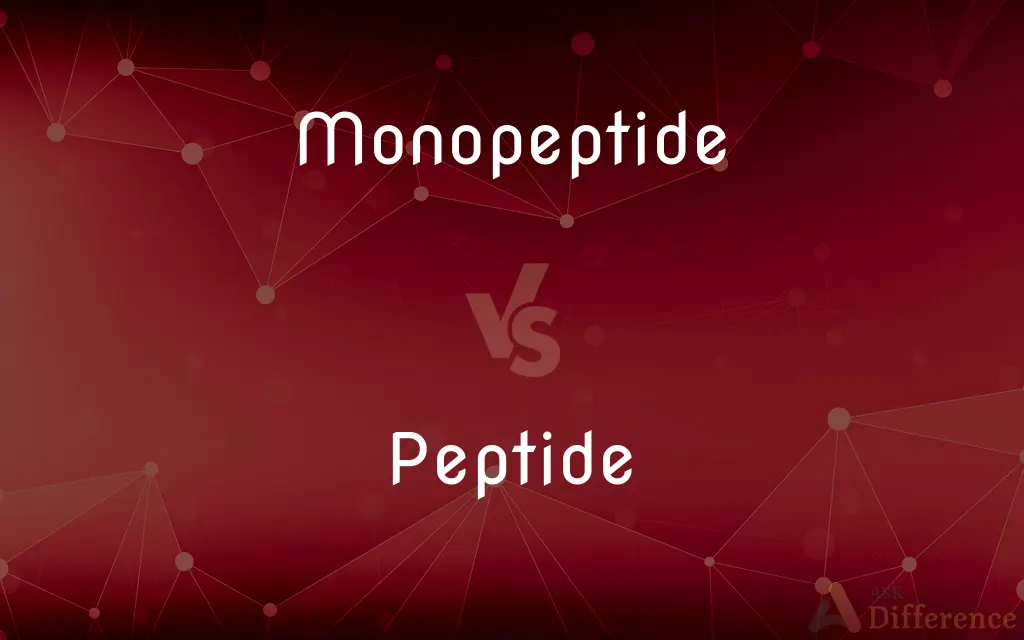Monopeptide vs. Peptide — What's the Difference?

Difference Between Monopeptide and Peptide
ADVERTISEMENT
Compare with Definitions
Monopeptide
(organic chemistry) Any peptide containing a single amino acid (combined with some other entity)
Peptide
Peptides (from Greek language πεπτός, peptós "digested"; derived from πέσσειν, péssein "to digest") are short chains of between two and fifty amino acids, linked by peptide bonds. Chains of fewer than ten or fifteen amino acids are called oligopeptides, and include dipeptides, tripeptides, and tetrapeptides.
Peptide
Any of various natural or synthetic compounds containing two or more amino acids joined by peptide bonds that link the carboxyl group of one amino acid to the amino group of another.
Peptide
(organic compound) Any of a class of organic compounds consisting of various numbers of amino acids in which the amine of one is reacted with the carboxylic acid of the next to form an amide bond.
Peptide
(chemistry) The peptide bond itself.
ADVERTISEMENT
Peptide
Amide combining the amino group of one amino acid with the carboxyl group of another; usually obtained by partial hydrolysis of protein
Share Your Discovery

Previous Comparison
Refuse vs. Decline
Next Comparison
Disability vs. Impairment














































